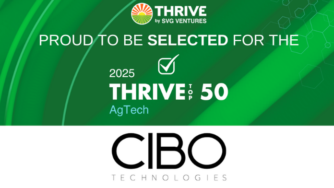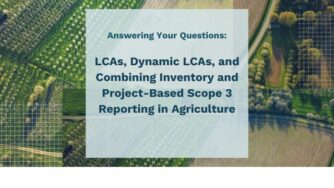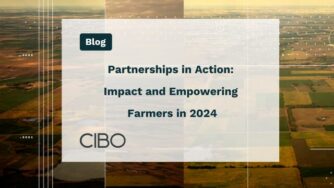Across the globe, organizations are committing to driving decarbonization and building climate resilience throughout their supply chains. Companies looking to meet ambitious sustainability goals are setting emission reductions and net-zero targets through Science-Based Targets (SBTi) and other sector-specific initiatives, such as SBTi Food Land and Agriculture (FLAG) Guidance. Through these programs, the organizations are publicly committed to disclose and reduce their Scope 1, 2 & 3 emissions in a transparent, verifiable manner in both the near term (SBTi FLAG) the long term (SBTi Net-Zero). At the end of 2021, 2,253 companies across 70 countries and 15 industries, representing more than one-third ($38 trillion USD) of global market capitalization, had approved emissions reduction targets or commitments with the SBTi. SBTi companies represent > ⅓ of the global economy and include:
- Anheuser-Busch
- Coca-Cola Co.
- Danone
- General Mills Inc.
- Kellogg
- Mars Inc.
- Nestlé
- PepsiCo.
- Unilever U.S.
The Challenge for Organizations with Agriculture in their Supply Chain
Given that SBTi FLAG guidance was just released in September of 2022, Companies that rely on agricultural products are challenged to provide reliable, transparent inventories of their current ag-based footprint and a quantifiable, verifiable method to evaluate, set, and achieve emissions reduction targets. Depending on their existing commitments, companies with existing SBTi targets need to do this by the end of 2023 or 2024.
These companies often are challenged to trace the emissions of their agricultural supply chain down to the field level and rely on outdated and coarse data, and ad-hoc reporting.
SBTi FLAG targets reporting formats are based on the Draft Greenhouse Gas Protocol (GHGP) Land Sector and Removals Guidance (LSRG), an additional, new emerging standard that will define how companies report Scope 3 emissions from cropland. SBTi FLAG and GHGP LSRG will result in significant changes in how companies inventory these emissions, but to achieve targets, these must be operationalized in the near team.
The Solution for Scope 3 Monitoring and Reporting
CIBO Impact is a full-stack software solution that provides reliable, efficient Scope 3 accounting and annual reporting for companies making emissions disclosures and reduction claims, within the agri-food chain. CIBO Impact provides accurate assessment of on-the-ground farm-level practices and their resultant emissions.
CIBO Impact lets users perform efficient supply shed and level GHG inventories using the most up-to-date science and technology available, and then report on those inventories in a transparent, audit-ready fashion.
Supply Shed Analysis
Perform year-over-year inventories of supply shed level carbon emissions, reductions/removals, carbon intensity, yield, cash crop, cover crop and tillage acres.
Farm & Field Supply Chain Analysis
Conduct field-level assessment for fields and farms enrolled in carbon and regenerative ag programs. Report year-over-year changes in emissions and practices that are attributable to your programs.
The CIBO Programs Engine
Rapid program matching, pre-qualification, opportunity sizing and enrollment through a convenient user experience that makes it easy for growers to participate in programs and convenient for enterprises to find, engage and pay growers.
Reporting
Easily report on program results to include in sustainability reporting or claims to consumers. Demonstrate compliance with GHGP LSRG and SBTi FLAG requirements.
Interested in learning more? Request a demo.
Request a Demo


